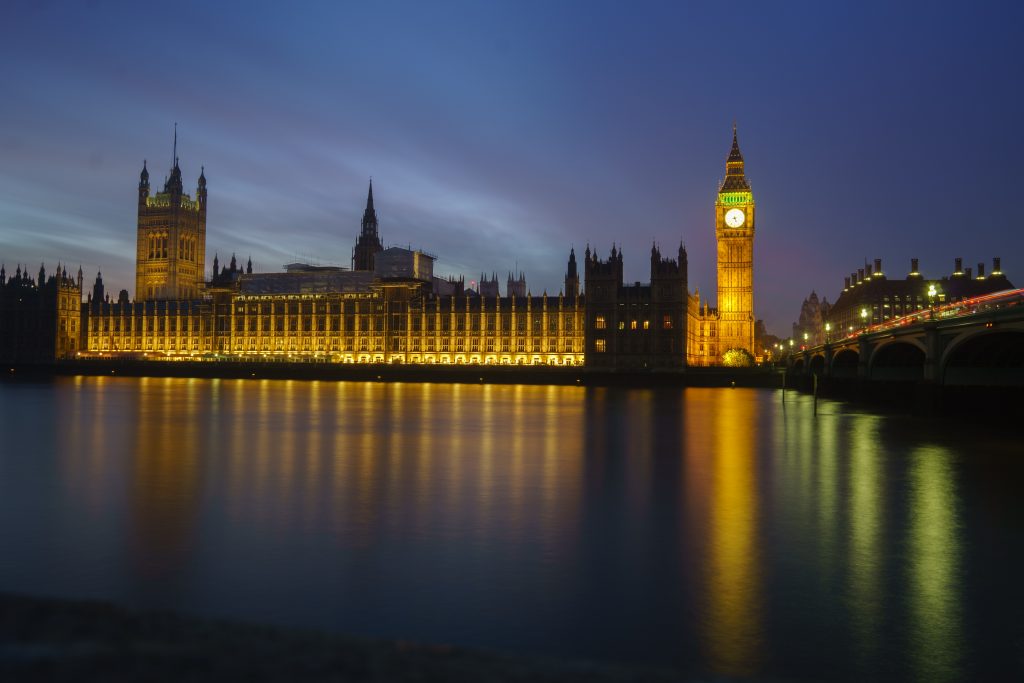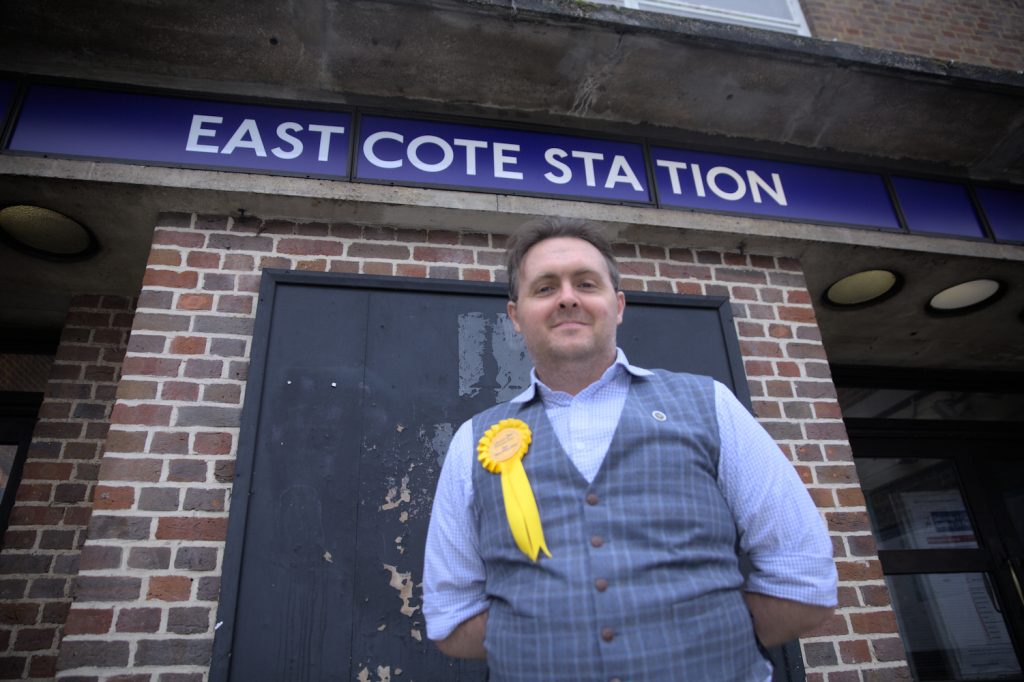Here Comes the New Boss…

Same As the Old Boss… I mentioned before the election that Labour really weren’t the party of change that they were claiming to be. I said on a number of occasions that they were basically the continuity party and that their policies were functionally almost identical to the Tories they were seeking to replace, but with more competent personnel. Yesterday a vote in the Commons demonstrated that this was indeed a correct analysis and that Labour is much more interested in party politics than the good of the country. What Happened? Yesterday MPs had the opportunity to vote on an amendment to the House’s response to the King’s Speech, which sets out the aims of the government now that Parliament has been reopened. The standard unamended response was: That an humble Address be presented to His Majesty, as follows: Most Gracious Sovereign, We, Your Majesty’s most dutiful and loyal subjects, the Commons of the United Kingdom of Great Britain and Northern Ireland in Parliament assembled, beg leave to offer our humble thanks to Your Majesty for the Gracious Speech which Your Majesty has addressed to both Houses of Parliament. Address to be presented to His Majesty by Members of the House who are Privy Counsellors or Members of His Majesty’s Household. Hansard This is a fairly standard response to a King’s Speech, and is entirely non-contentious to simply pass without further comment. However, it is also an opportunity for minority parties to point out to the government that they have missed some key issues that really ought to have been included. In the case of the amendment proposed by Christine Jardine MP (Liberal Democrat, I might add), these issues were: The right to see a GP within seven days A guarantee for cancer patients to start treatment within 62 days from urgent referral Free personal care in England Better support for carers, and a cross-party commission on social care An end to the scandal of sewage dumping against which the previous Government failed to take action, including by replacing Ofwat with a new regulator Support families with the cost of living Tackle poverty, including by introducing a national food strategy, extending free school meals to all children in poverty, and by scrapping the two-child benefit cap Ensure that rural communities and farmers receive adequate support Reform the system for parliamentary elections by replacing first-past-the-post with proportional representation, so that every vote counts The new Labour government voted this down. Not only that, they withdrew the Whip from seven MPs that voted to amend the King’s Speech response (NB, they actually voted for an amendment from the SNP which only focused on the child benefit cap – they didn’t even go so far as to vote for this amendment with its various additional benefits for the country), including the former Shadow Chancellor, John McDonnell. Frankly there is nothing in this amendment that should warrant this type of action from Starmer. His party supports all of these, including proportional representation, so he does not have a mandate from his own party to ignore these requests, let alone the fact that almost every other party in Westminster voted for this amendment (Tories notwithstanding, given they are responsible for most of the mess this would have addressed). Danny’s Debut This year I lost the Uxbridge & South Ruislip election to Danny Beales. At the time I was not hugely disappointed with this because during the hustings Danny set himself out to be progressive in the true sense of the word. Nevertheless, he joined the Labour masses in voting against this amendment. Shame on you, Danny. Every single one of these proposals was in line with what a true progressive would have wanted, and you used one of your very first appearances in our Parliament to vote to retain Tory policies that have harmed our country and our constituency. You should have joined John McDonnell in voting for this amendment if you wanted to be taken seriously as a progressive, but it seems that you have chosen to simply fall in line with what Starmer demands even when it contradicts your own personal morality. A fine example of putting party before country, something you were very keen to accuse Steve Tuckwell of doing. Frankly, if you want to be a progressive, you are clearly in the wrong party. Labour is not a progressive party, as demonstrated by suspending several prominent MPs who dared to vote for some actual progressiveness.
5 Parliamentary Anachronisms

No, I am not doing an article bashing the Conservative Party, or at least not with that as the sole focus. Instead I wanted to cover some of the oddities of Parliament that stem from tradition rather than any reasoned process. As such, here are some of the weirder parliamentary anachronisms that we can see today. Minimalist Architecture In somewhere like the Palace of Westminster, it is hard to believe that the phrase “minimalist” could accurately apply to any part of the building. Nevertheless, the heart of our democracy, the debate chamber in the House of Commons, is woefully undersized. At the moment the UK has 650 elected Members of Parliament. Some of those do not take their seats, so the actual number of active MPs is a little below that, but the capacity of the debate chamber is well below that level, around 427 seats. This is why many of the well-attended debates see Members cramming into the chamber, with a significant number of elected officials reduced to standing to watch the proceedings. Oath of Allegiance I mentioned above that some seats are not filled at all. This is mostly due to the fact that the elected representatives of Sinn Fein do not take their seats, entirely because they will not swear the oath of allegiance. This is wholly understandable, as the oath is a personal declaration of intent to follow the orders of the monarch of the UK, while the whole purpose of Sinn Fein as a political entity is to separate Northern Ireland from the UK. Such an oath would directly contradict their party’s stance, so they refuse. Incidentally, it is not possible for an MP to either draw their salary or speak and vote in debates until they swear the oath, so that means that the current system specifically excludes representation for anti-monarchists. The Mace If you see a large ceremonial mace in front of the Speaker’s chair and wonder “what is that for?”, this is the section for you. This isn’t a table decoration or a paper weight, instead it is the symbol of the Crown in Parliament. By tradition, the monarch is not allowed to set foot in the House of Commons, so instead the Mace is present. Bizarrely, this means that any debates or decisions made without the Mace being present are not valid and will not be recorded in official proceedings. When Parliament is prorogued (brought to a temporary close) the Mace is removed, symbolically withdrawing the authority of the Commons to make any decisions. The Mace is returned at the Opening of Parliament. Member Behaviour One of the odder things about Parliamentary process is the way that MPs refer to one another. In short, naming another MP is taboo. Addressing another MP directly is likewise not permitted. Instead all comments are made to the Speaker and any referrals to active MPs is made by referencing their constituency (e.g. the Member for Uxbridge and South Ruislip). This is intended to increase the decorum of debate by stopping MPs from outright insulting one another, but I think it’s fair to conclude that Prime Minister’s Questions demonstrates that the quality of debate is woeful. Voting At the cry of “Division” by the Speaker, the Commons officially enters a closed state for voting for a motion. This is a literal reference, in that the lobby doors used to be physically locked to ensure that MPs didn’t vote multiple times or that outsiders weren’t called in to cast a vote they shouldn’t have. You might think that in this modern era of connectivity, there would be a move towards using that for votes so that more business could be done. Sadly not, the division is still counted by the MPs present physically walking through one of two side lobbies, casting their vote by tapping their membership card onto a scanner (a recent upgrade to each corridor having its own set of counters who would report back after a manual count). This is one of the more egregious anachronisms for various reasons. First, it is not particularly friendly to disabled MPs or those dealing with a new child to force them to physically move through a voting lobby. Secondly, it is grossly unfair to restrict MPs who cannot be in Westminster from voting. This is less of a problem for a London constituency as it is for one of the outer Scottish regions, which might be seven or eight hours away from Parliament. This is an area which could easily be modernised for the good of the country. A modern electronic voting system would be very simple to set up, and would reduce the time needed for divisions from 20 minutes or so to under a minute. With an app-based voting system and biometric protection, MPs would be able to cast their vote from anywhere in the world, allowing them to spend more time in their constituencies.
Campaign Launch

I am officially launching my campaign! Support me if you also like democracy, equality and integrity in your elected officials.